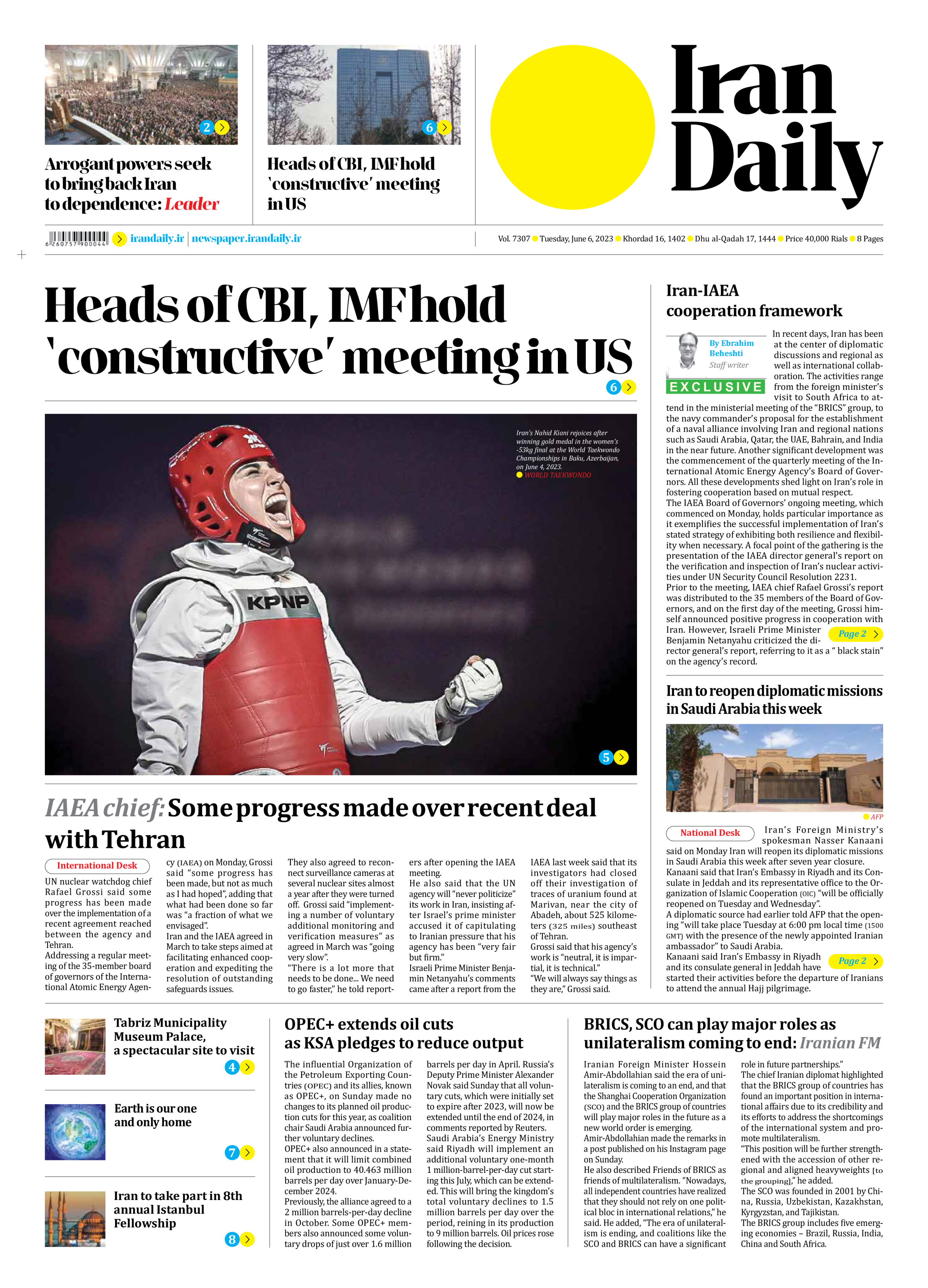
IAEA chief: Some progress made over recent deal with Tehran
UN nuclear watchdog chief Rafael Grossi said some progress has been made over the implementation of a recent agreement reached between the agency and Tehran.
Addressing a regular meeting of the 35-member board of governors of the International Atomic Energy Agency (IAEA) on Monday, Grossi said “some progress has been made, but not as much as I had hoped”, adding that what had been done so far was “a fraction of what we envisaged”.
Iran and the IAEA agreed in March to take steps aimed at facilitating enhanced cooperation and expediting the resolution of outstanding safeguards issues.
They also agreed to reconnect surveillance cameras at several nuclear sites almost a year after they were turned off. Grossi said “implementing a number of voluntary additional monitoring and verification measures” as agreed in March was “going very slow”.
“There is a lot more that needs to be done... We need to go faster,” he told reporters after opening the IAEA meeting.
He also said that the UN agency will “never politicize” its work in Iran, insisting after Israel’s prime minister accused it of capitulating to Iranian pressure that his agency has been “very fair but firm.”
Israeli Prime Minister Benjamin Netanyahu’s comments came after a report from the IAEA last week said that its investigators had closed off their investigation of traces of uranium found at Marivan, near the city of Abadeh, about 525 kilometers (325 miles) southeast of Tehran.
Grossi said that his agency’s work is “neutral, it is impartial, it is technical.”
“We will always say things as they are,” Grossi said.







